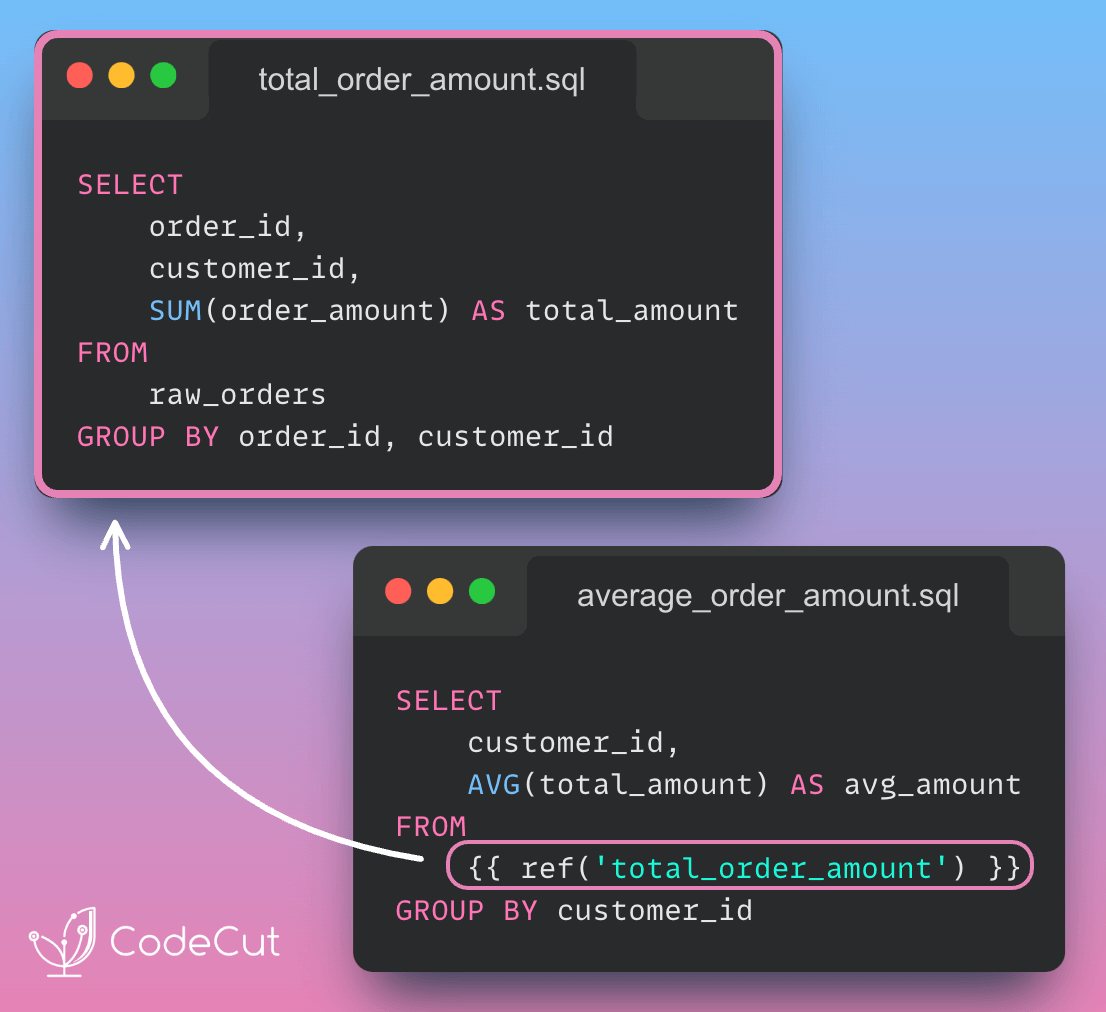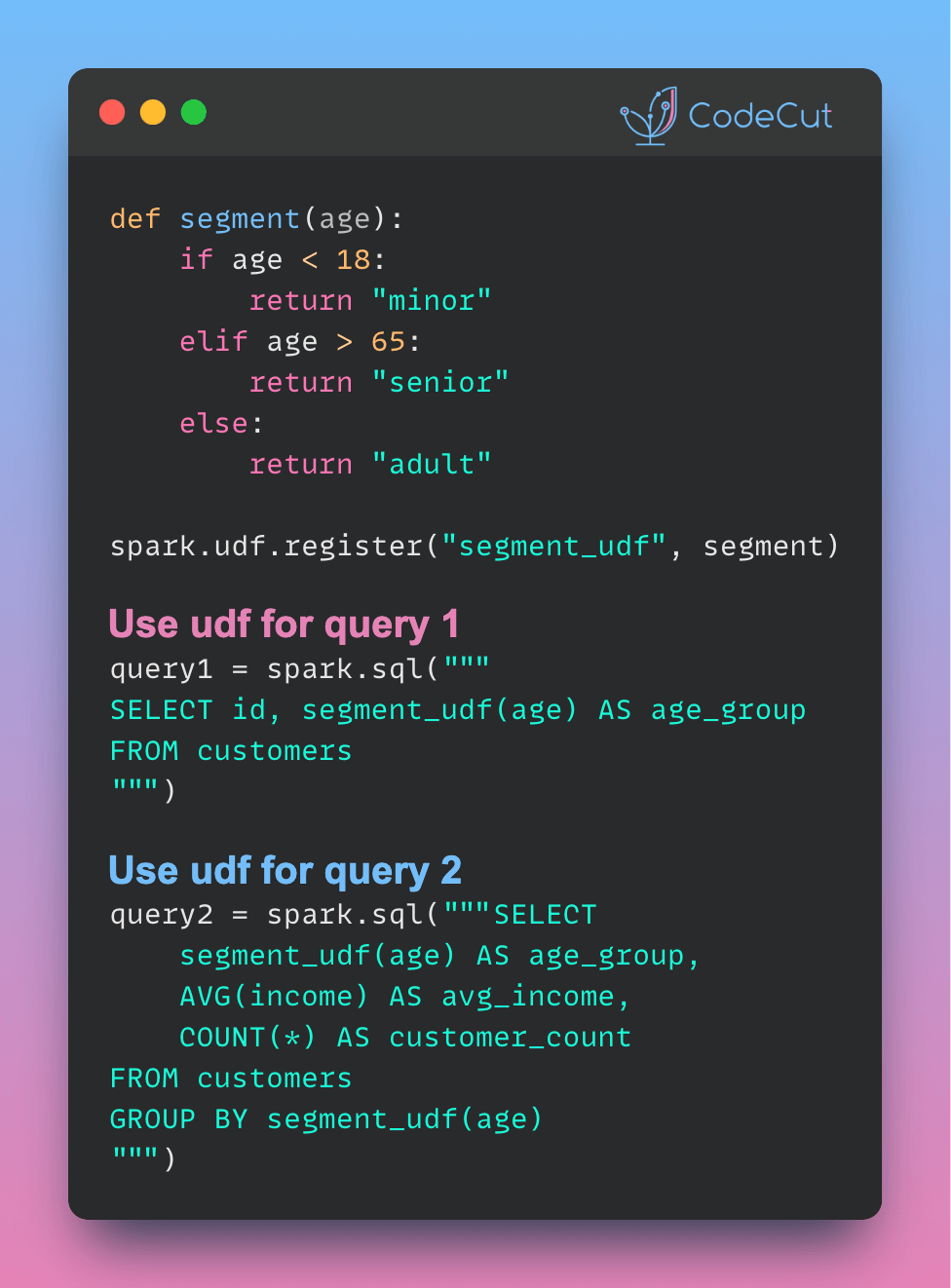Large SQL scripts can be difficult to read, understand, and maintain. With dbt, you can use the ref function to break down a long SQL statement into smaller components.
Consider this example:
Calculate total order amount:
-- models/total_order_amount.sql
SELECT
order_id,
customer_id,
SUM(order_amount) AS total_amount
FROM
raw_orders
GROUP BY order_id, customer_idmodels/average_order_amount.sql:
-- models/average_order_amount.sql
SELECT
customer_id,
AVG(total_amount) AS avg_amount
FROM {{ ref('total_order_amount') }}
GROUP BY customer_idBenefits of this approach:
- Collaboration: Team members can work on separate modules simultaneously.
- Development: Easier to write and debug smaller, focused components.
- Maintenance: Update specific modules without affecting the entire query structure.
- Reusability: Encapsulate common SQL patterns for use across various queries.
By leveraging dbt’s ref function, data teams can transform complex SQL scripts into a series of interconnected, manageable modules. This not only improves code quality but also enhances overall workflow efficiency in data analytics and engineering projects.





